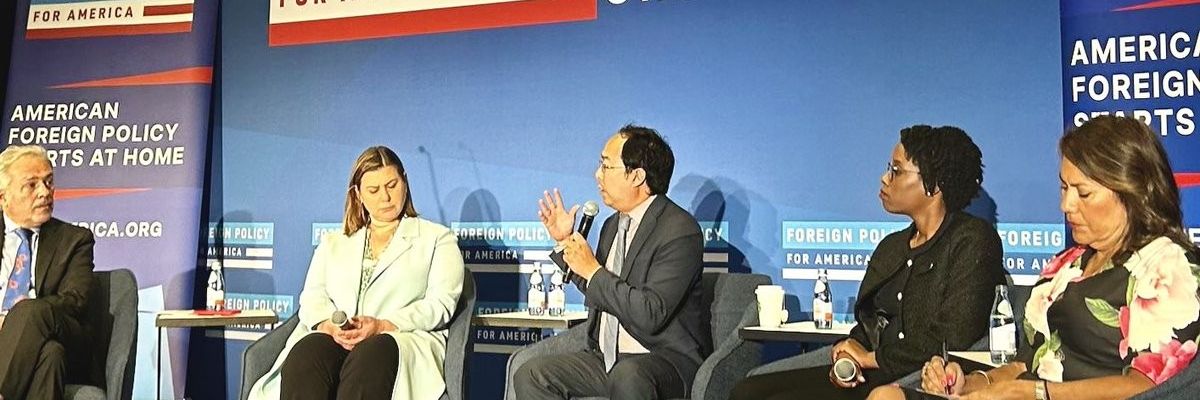China has been the chief foreign policy and national security obsession of the 118th Congress. Members have introduced over 300 pieces of legislation aimed at confronting the rise of Beijing and created the hawkish “Select Committee on the Strategic Competition Between the United States and the Chinese Communist Party.”
As the journalist Ed Luce, who moderated a panel on US-China relations during Foreign Policy for America’s annual Leadership Summit on Monday, noted, it is one of the few areas of bipartisanship in an increasingly polarized Congress.
The four members of the House of Representatives who participated on the panel offered words of caution to their colleagues, warning that heightened rhetoric could leave Washington in a perilous predicament. “It’s really important that we remember, particularly when rhetoric continues to heat up, that, God forbid, we ever had to go to war with China, it is mutually assured economic destruction,” said Rep. Elissa Slotkin (D-Mich). “At the end of the day, a war will be a disaster for them and certainly for us.”
If anything, according to Rep. Andy Kim, who sits on the select committee, the increase in tension between the two largest economies in the world should incentivize U.S. officials to engage with their counterparts even more. “When the chairperson or when someone else on [the select] committee talks about how China is an existential threat to the United States. That's a real problem,” remarked Kim (D-N.J.) “When you call someone or something an existential threat, how do you have a conversation? How do you have engagement? How do you have diplomacy?”
Luce noted that efforts to calm tensions have so far not been particularly effective, pointing to a recent Pew Research poll that indicates that four in ten Americans consider China to be an enemy, up thirteen points from when a similar poll was conducted last year. Kim called that polling data “a huge problem,” and Rep. Veronica Escobar said it was “very disconcerting.”
All of the members acknowledged that Beijing does pose a significant challenge to the U.S. and the Chinese government had not seemed particularly interested in constructive engagement either, but maintained that the response should not be to treat conflict as inevitable. “Some of the challenges I’ve seen, especially being on the select committee (...) is how reactionary we’ve become in terms of our foreign policy, especially when it comes to China,” said Kim noting what he saw as a bipartisan overreaction to the Chinese spy balloon and legislation aimed at banning TikTok.
One consistent theme throughout the panel was that there may be substantial ways in which Washington can and should compete with China, but those potential U.S. policies are too often drowned out by legislation that is only intended to antagonize Beijing. “We have not had an immediate pressing reason in my opinion, to vote on anything related to China,” so far in this Congress, said Lauren Underwood (D-Ill.) She argued that all of the bills aimed at countering the CCP were messaging bills aimed at painting opponents as soft on China and “a lot of colleagues are trying to neutralize a CCP or Chinese attack in the electoral context by wrapping themselves in the blanket of bipartisanship” on the issue.














